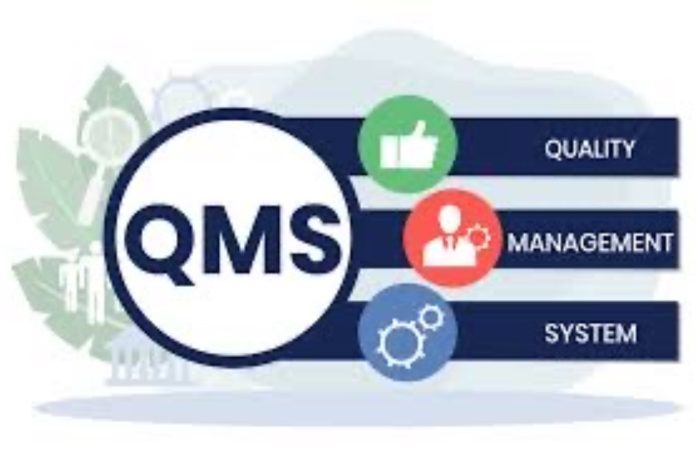In today’s competitive business landscape, maintaining high standards and consistent quality is essential for success. One of the most effective ways to achieve this is through implementing a robust Quality Management System (QMS). A well-structured QMS not only ensures that products and services meet customer expectations but also enhances overall business performance. Among the various standards available, ISO 9001 accreditation stands out as a globally recognized benchmark for quality management.
Understanding Quality Management Systems
A Quality Management System is a formalised framework that documents processes, procedures, and responsibilities for achieving quality policies and objectives. It helps coordinate and direct an organisation’s activities to meet customer and regulatory requirements and improve its effectiveness and efficiency continuously.
Implementing a QMS involves several key components:
- Customer Focus: Understanding and meeting customer needs and striving to exceed their expectations.
- Leadership: Establishing a clear vision, unity of purpose, and engaging people in achieving quality objectives.
- Engagement of People: Encouraging involvement and empowerment at all levels of the organisation.
- Process Approach: Managing activities as processes that function as a coherent system.
- Continuous Improvement: Making ongoing efforts to enhance products, services, and processes.
- Evidence-Based Decision Making: Using data and analysis to guide decision-making processes.
- Relationship Management: Building mutually beneficial relationships with suppliers and partners.
The Role of ISO 9001 Accreditation
ISO 9001 accreditation is a testament to a company’s commitment to quality. ISO 9001 is an international standard that specifies the requirements for a QMS. Organisations that achieve ISO 9001 accreditation demonstrate their ability to consistently provide products and services that meet customer and regulatory requirements while enhancing customer satisfaction through effective system processes and continual improvement.
Benefits of ISO 9001 Accreditation
- Enhanced Customer Satisfaction: ISO 9001 focuses on meeting customer requirements and improving satisfaction. By implementing the standard’s principles, businesses can better understand customer needs and work towards exceeding them.
- Improved Efficiency and Productivity: A well-implemented QMS streamlines processes, reduces waste, and increases operational efficiency. This leads to better resource management and lower costs.
- Risk Management: ISO 9001 encourages a proactive approach to identifying and addressing risks, leading to more stable and reliable processes.
- Market Competitiveness: Achieving ISO 9001 accreditation gives businesses a competitive edge in the marketplace. It signals to potential clients and partners that the company adheres to internationally recognized quality standards.
- Continuous Improvement: The standard fosters a culture of continuous improvement, driving organisations to constantly evaluate and enhance their processes and performance.
Implementing a Quality Management System
Implementing a QMS based on ISO 9001 involves several steps: - Gap Analysis: Assess current processes and identify areas that need improvement to meet ISO 9001 standards.
- Training and Awareness: Educate employees about the importance of quality management and their role in the QMS.
- Documentation: Develop and maintain documentation of processes, procedures, and responsibilities in line with ISO 9001 requirements.
- Internal Audits: Conduct regular internal audits to ensure the QMS is functioning effectively and identify areas for improvement.
- Management Review: Regularly review the QMS with top management to ensure its continued suitability, adequacy, and effectiveness.
- Continuous Improvement: Use feedback and data to make informed decisions and drive continuous improvement efforts.
Conclusion
Incorporating a Quality Management System and achieving ISO 9001 accreditation is a strategic move that can elevate business performance. It not only helps in delivering consistent quality and enhancing customer satisfaction but also drives efficiency, competitiveness, and continuous improvement.
For businesses aiming to thrive in a competitive market, embracing ISO 9001 accreditation is a clear indicator of commitment to quality and excellence. Start your journey towards improved business performance and customer satisfaction by exploring the benefits of ISO 9001 accreditation.
KEEP US ALIVE and join us in helping to bring reality and decency back by SUBSCRIBING to our Youtube channel: https://www.youtube.com/channel/UCQ1Ll1ylCg8U19AhNl-NoTg AND SUPPORTING US where you can: Award Winning Independent Citizen Media Needs Your Help. PLEASE SUPPORT US FOR JUST £2 A MONTH https://dorseteye.com/donate/







